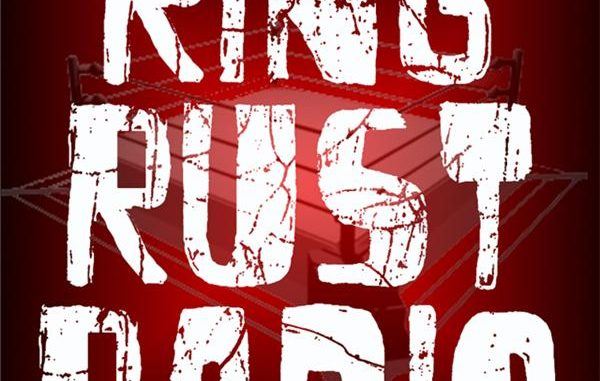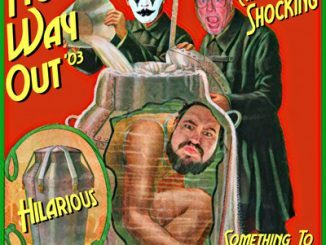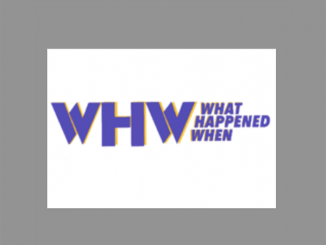
Justin Roberts was recently a guest on Ring Rust Radio to talk about his book, his
Ring Rust Radio: You recently released your book, Best Seat in the House: Your Backstage Pass Through My WWE Journey. Why did you feel now was the right time to write this book and what are you hoping to accomplish with its release?
Justin Roberts: I thought it made for a cool story many years ago while I was actually with the company. I thought because I was a huge WWE fan and a wrestling fan in general for so many years and then I made it to WWE, I was able to work with a lot of the guys a grew up watching, and I just thought it made for a cool story. The idea came while I was actually still there. I pitched it to WWE magazine and they weren’t interested in my story so it was still in the back of my mind and I thought it was a cool story and I’d like to share it. I started working on it while I was there and I had a good amount down and then once I wasn’t with the company anymore it just made it easier to go back in and speak more freely and talk about anything I wanted to talk about in the story. So, once it came together and it felt like it was where it needed to be, that’s when I released it.
Ring Rust Radio: Considering how close you are to the action, what type of information are you told before the matches about what is going to happen? Do you know if they’re expected to battle around ringside, for example?
Justin Roberts: No, that’s usually not something I’m aware of which is good because when they came at me, I always looked scared and acted scared and ran away scared because I kind of was. Everybody gets in their zone when they come out to the ring and they’re not my buddies that they are backstage. Now they are the characters and they are on and they are performing. I always got out of the way if they came brawling towards me. If it looked real it was because it felt real. I didn’t look at them brawling around me and think, “Oh those are my buddies and they’re going to do anything, I’m ok.” It was, “Oh no they are over here, they are beating each other up and I need to get out of the way.” If I don’t, I might get it in the middle of it. I didn’t really know if they were coming near me. Once in a while they would send somebody flying through the barrier and the barrier would fall backwards onto where the timekeeper and I sat, and sometimes we would be warned of that just so we would know to get out of the way and not get hit with it.
Ring Rust Radio: One of the hottest topics recently has been the accusations of bullying against John Bradshaw Layfield. Many reporters are using stories from your book for source material in the case against JBL, but what are your thoughts on the situation with Mauro Ranallo?
Justin Roberts: A lot of people asked me about it and I said I don’t know Mauro. I don’t know him at all and we never once talked. I don’t know his situation. All I know is the experiences that I’ve had which I clearly stated were in 2003 when that was happening with JBL. Case in point, after the incident with Joey Styles when he stood up to him and punched him, he basically disappeared shortly after that. When he came back, he was a much different person. That stuff wasn’t going on and the locker room had changed completely. So, when he came back it was a different world with different guys and a different mentality. The guys who were around in the early 2000s knew what happened and later on, I don’t know what happened with Mauro. So I can’t say anything about that, but I did say when people asked me if he should be fired and I would say no. It’s not just something with JBL; it’s a mentality in the company. They like to ride people and I don’t know if that had anything to do with Mauro because again, I don’t know anything about his situation for sure, just the accusations that we have heard that are going around.
Ring Rust Radio: If you could go back and relive your WWE career is there anything you personally would do differently or anything that you wish was different outside of your own control?
Justin Roberts: I’m happy with everything I got to do I feel like I got to do everything that I dreamed of and more. Stuff that I couldn’t have even dreamed of. I’d always try to speak up if I had an idea or something that I saw at a live event or on TV. If there’s something I thought they could be better, I would bring it up. If there’s something in the script that just didn’t make sense from a fans perspective, I would speak up. I always tried and I got shot down a lot. If I brought something up or if I tried to turn up my announcing or if I saw an announcement that just felt like it wasn’t big enough and I would turn it up and make it a bigger announcement, I would be told to turn it down and bring the announcement down. So, I feel like I tried. I tried to do everything I could to be the very best that I could, but I knew that I wasn’t allowed to do a lot of the things that I thought they were better for announcing or better for the announcers to do. I don’t have any regrets because I tried. If I got shut down, I got shot down, but at least I tried.
Ring Rust Radio: Looking back, what was the biggest thrill of your WWE career or your crowning achievement that you believe maybe helped you leave your mark on the company or the business?
Justin Roberts: I think maybe some of those announcements that have become memorable to a lot of people. I hear from a lot of people about the John Cena introduction, the Undertaker introduction, and the Jeff Hardy introduction. Some of those introductions that became part of the entrance and those guys didn’t need me by any means. They are big stars on their own, but just that my voice was able to contribute in a small way to their introduction and to leave a mark on people the same way Howard Finkel had on older fans. The people that grew up hearing my introductions for those guys that they were watching, things like that are pretty cool.
Ring Rust Radio: In your book, you speak about your experiences with Triple H, someone who was once hated by hardcore fans and is now heralded as a genius. What are your thoughts on Triple H and the perception that he is saving WWE with NXT?
Justin Roberts: I mean, he takes care of his NXT guys. I think there are a lot of guys that aren’t NXT guys that aren’t treated very well and can’t reach the heights that they can with their potential. There always seem to be someone or something working against them while his guys always seem to look good and the guys he isn’t into tend to not look so good. In my dealings with him, when I talked about the live event producer position, here was someone who was at every single show, watching every live event, every TV show, every PPV from ringside and all of them from beginning to end. I saw how it was broken and I wanted to help fix it and just to help this company. Someone like Triple H kept blowing me off and saying that I didn’t have enough experience and then bringing in guys that knew nothing about the business and they didn’t come from a wrestling world and didn’t know how to put together a wrestling show or the psychology behind it. It’s a psychological roller coaster that you take the fans on during a show. For him to tell me I didn’t have enough experience and then he brings in guys with no experience just didn’t make any sense. He was the top heel and when we were in Australia, he was the top authority figure, but he would start a live show welcoming everybody and he was out there as a babyface. People would boo when he came on because he is a heel on TV, but at the same time, he wants to be a babyface and accepted by everyone. Things just didn’t make sense and that should paint the picture for you.
For the full interview, check out Ring Rust Radio.




Be the first to comment